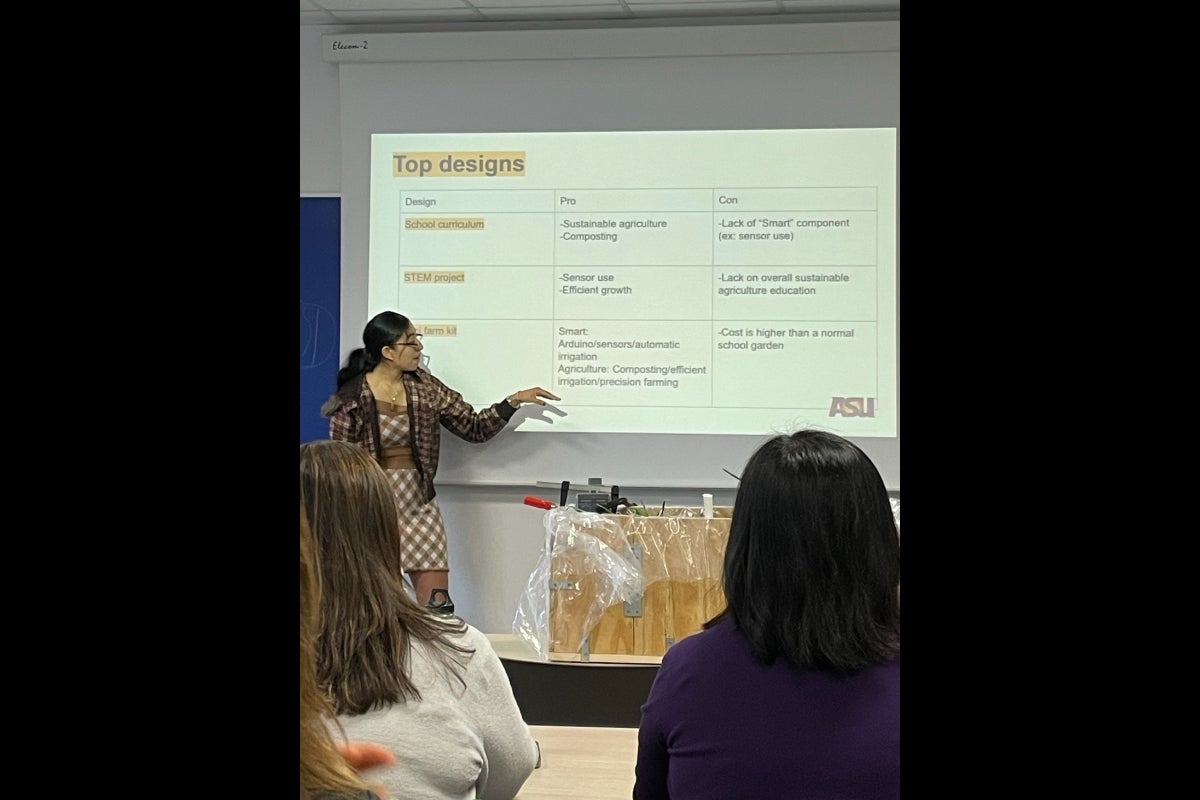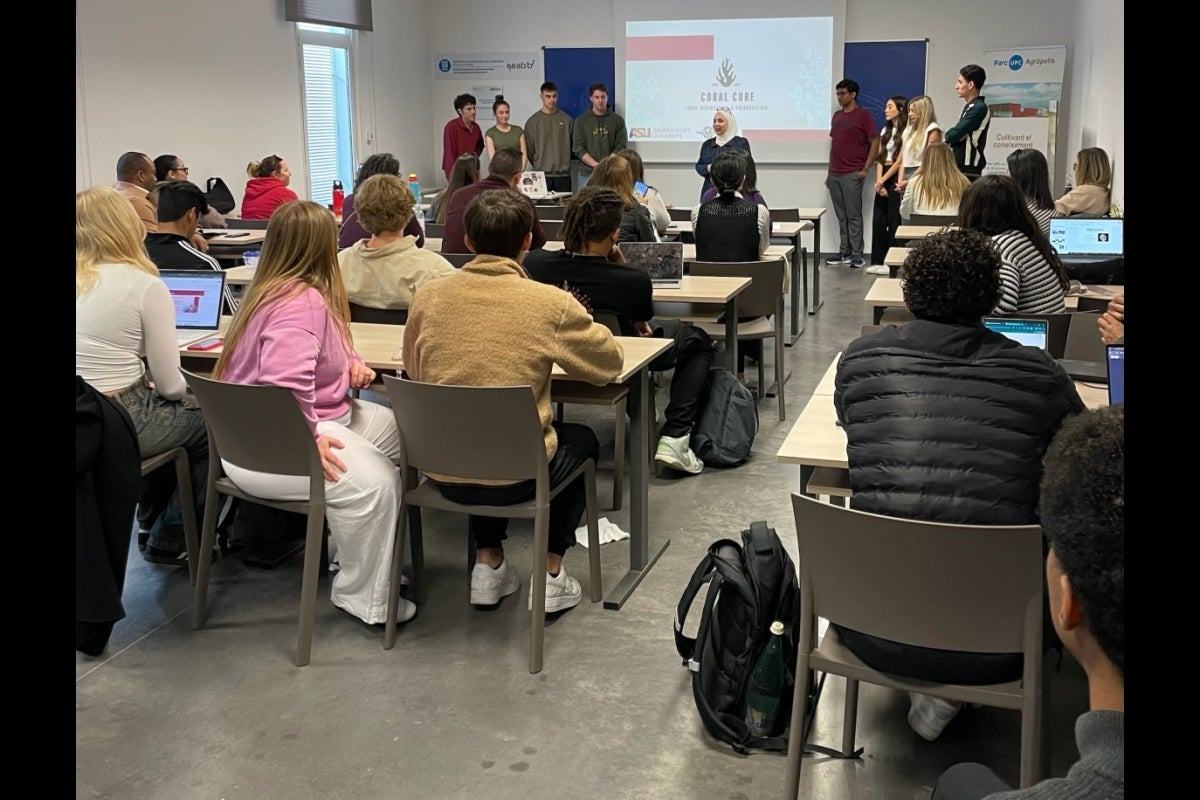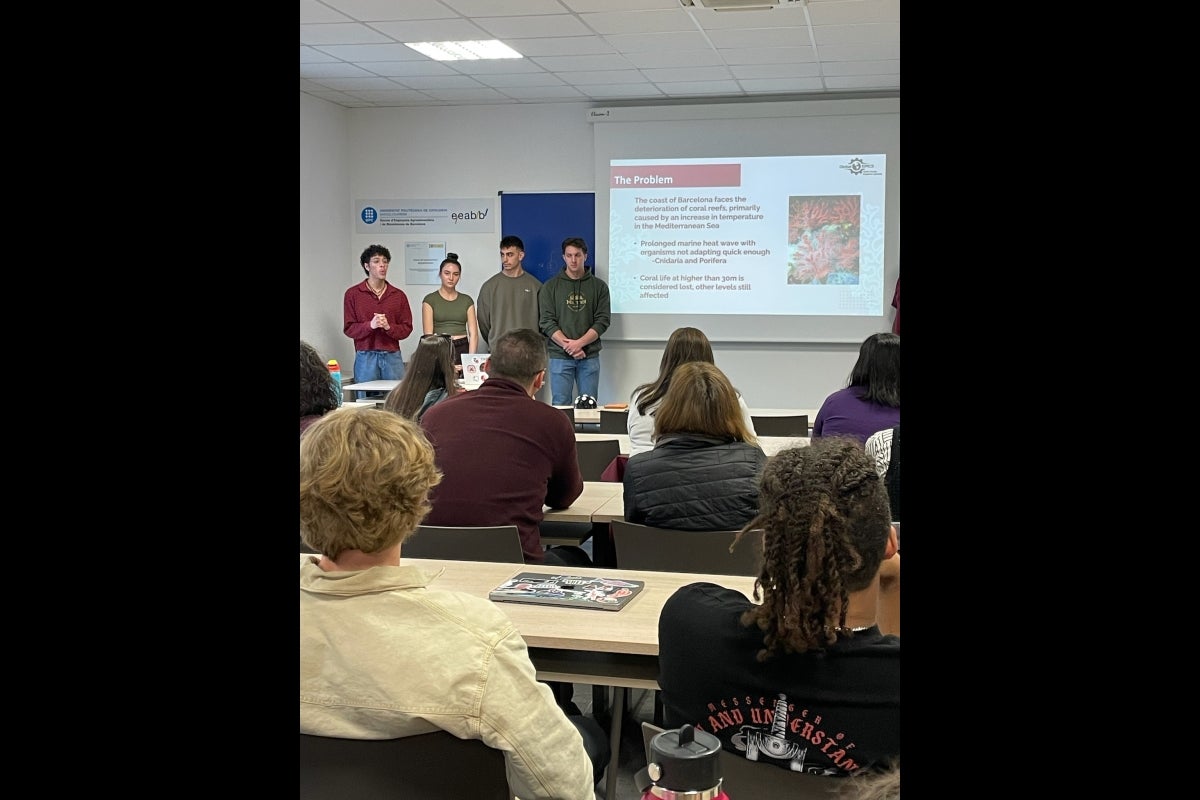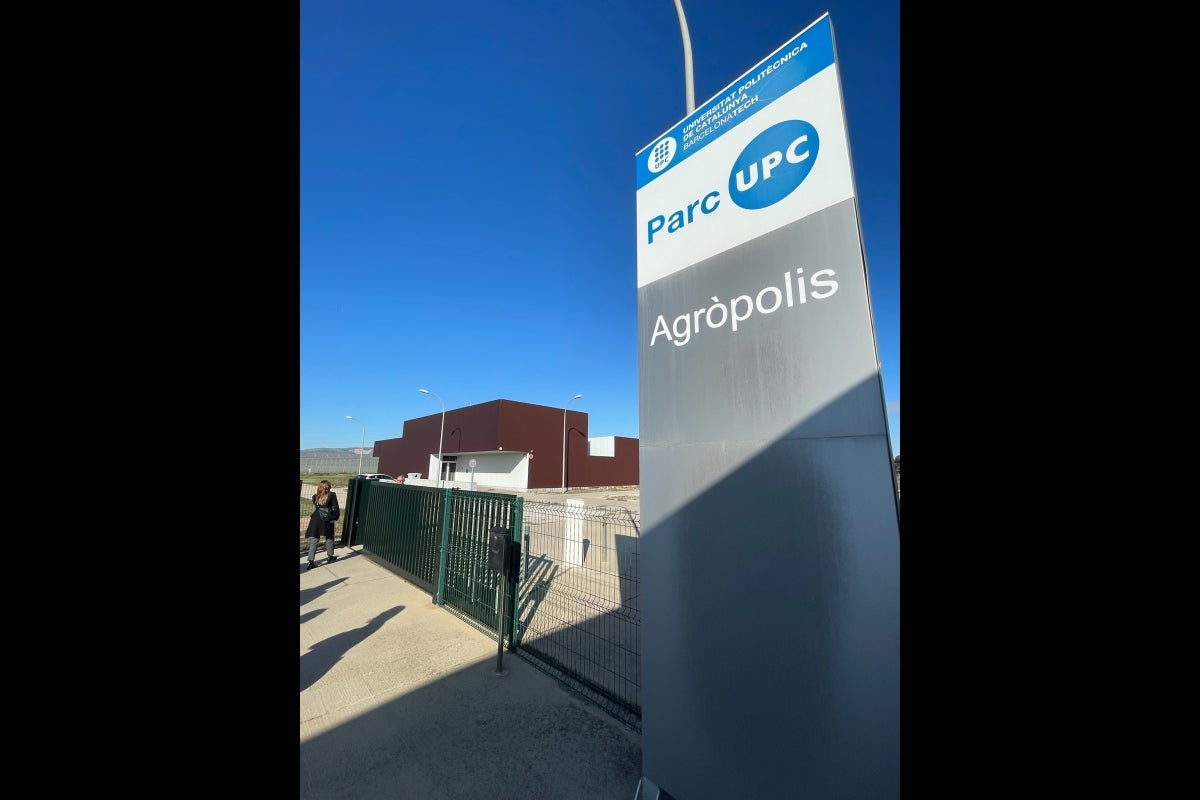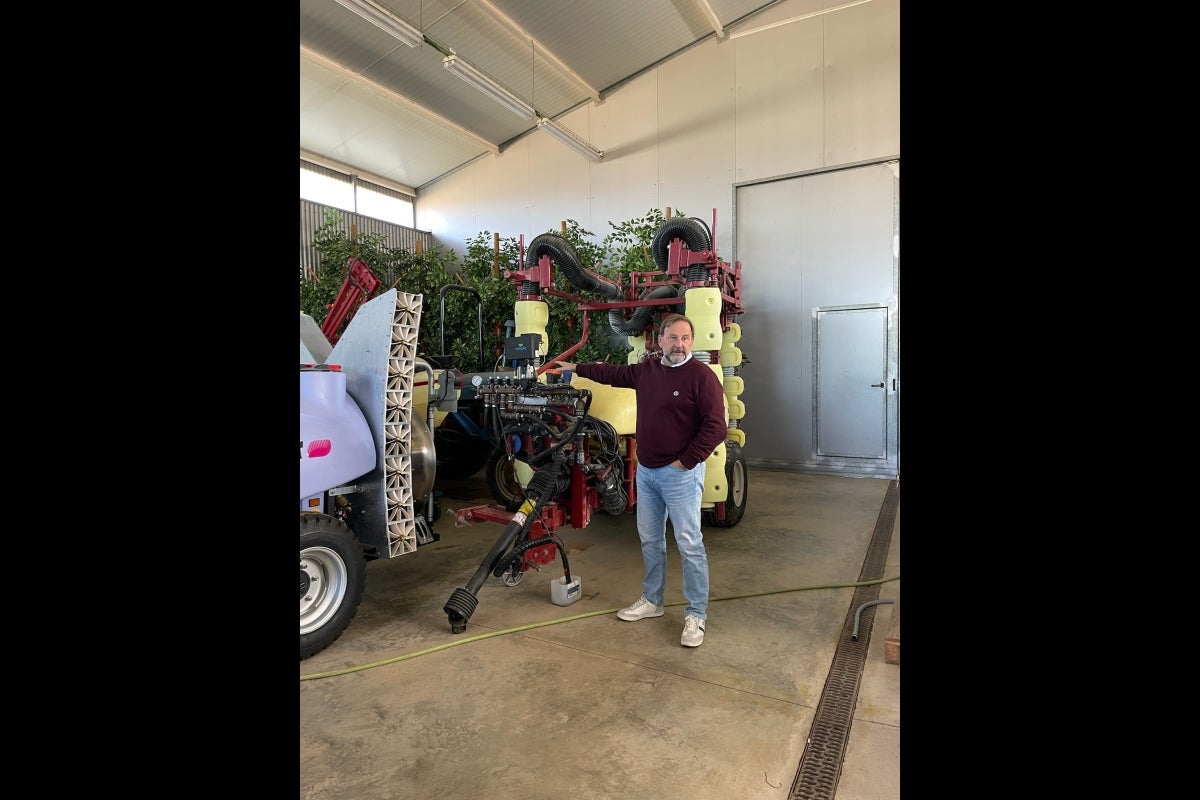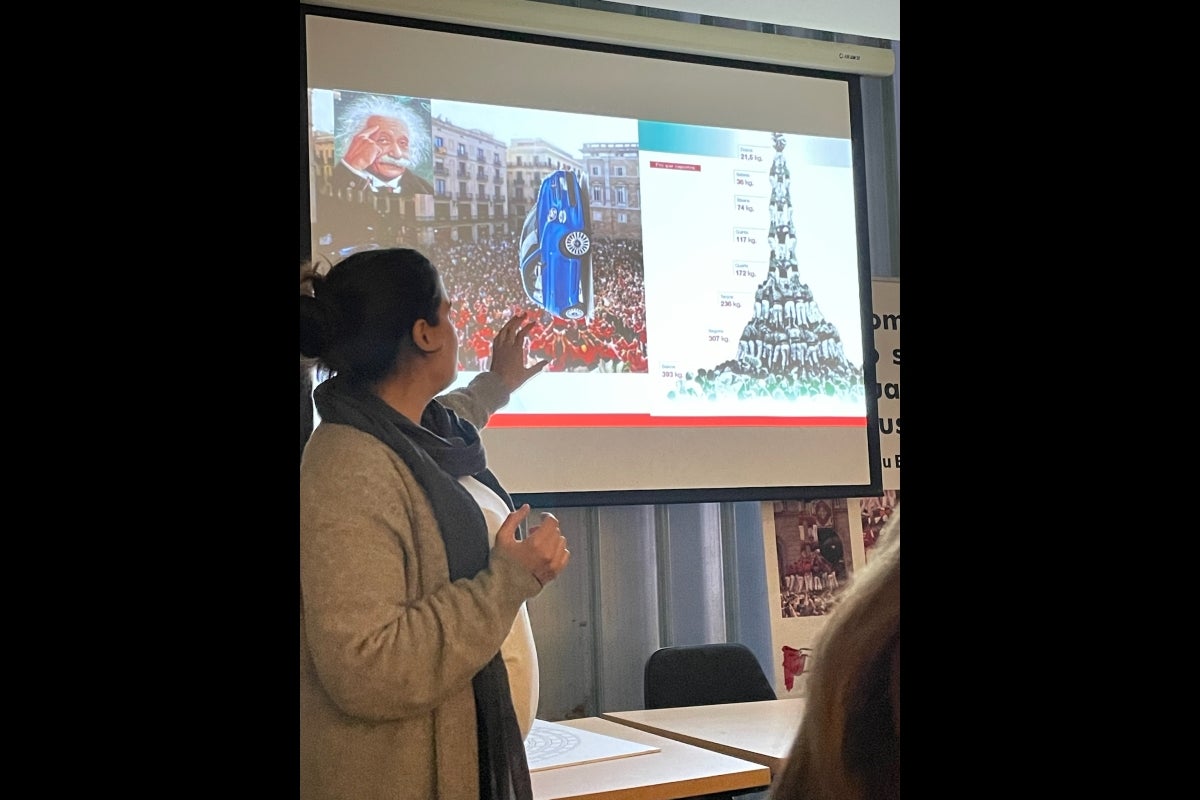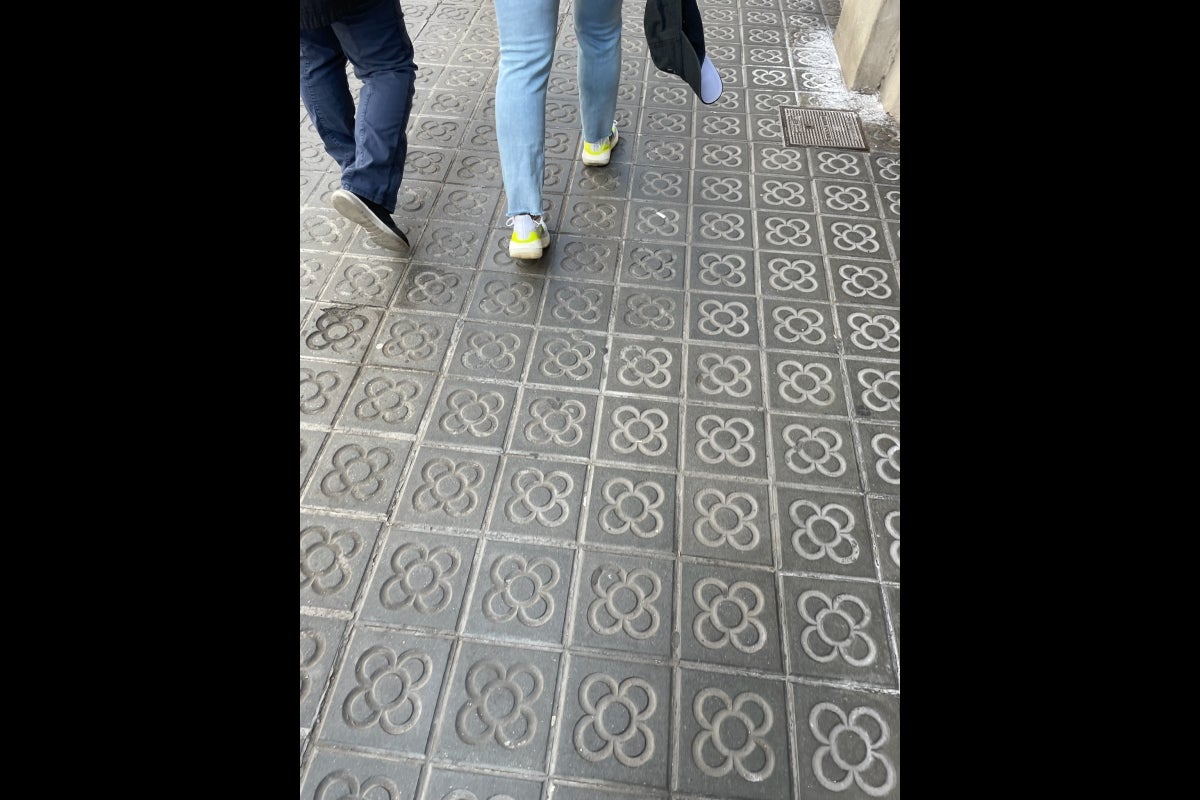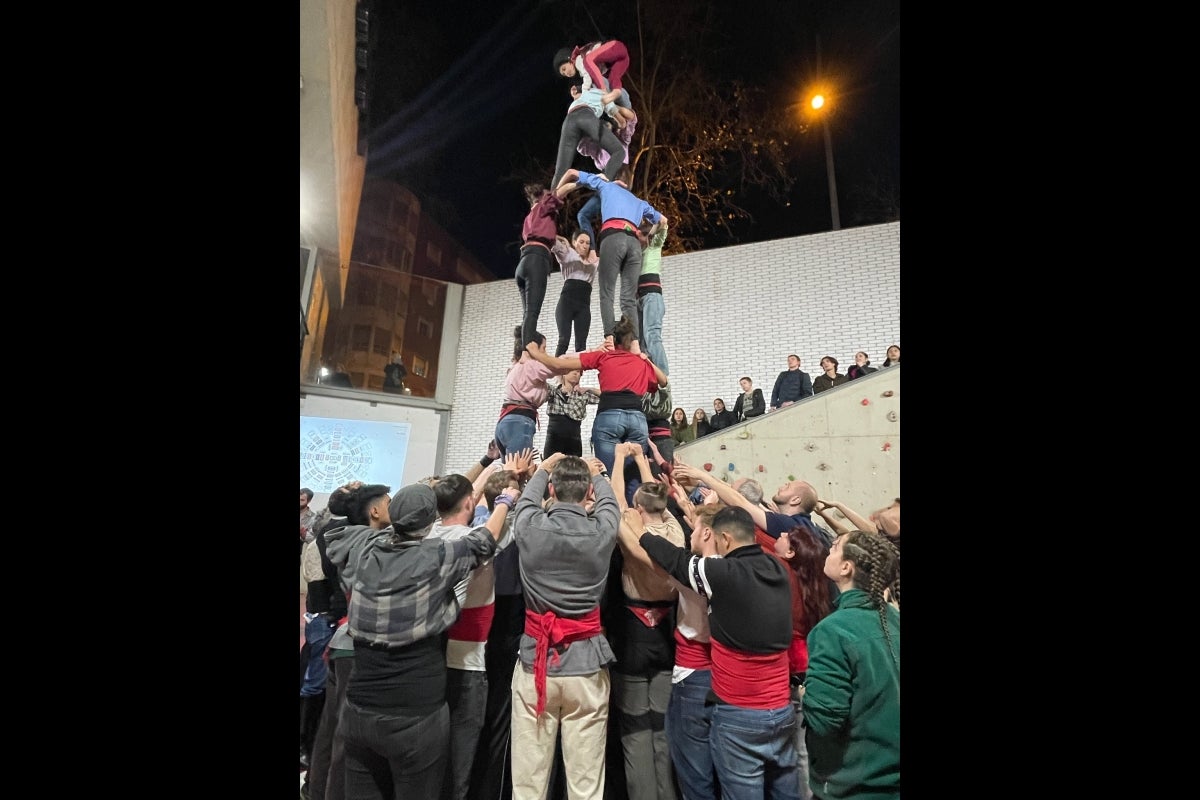Sun Devils in Spain: ASU study abroad provides cultural, engineering experiences in Barcelona

Park Güell in Barcelona was designed by Spanish architect Antoni Gaudi. Photo by Gabriella Kemp/ASU
From saving the coral reef and transforming food waste to learning about Catalan culture, Sun Devils spent time in Barcelona this March as part of Arizona State University's Global Intensive Experience courses.
During spring break, students who were part of an Ira A. Fulton Schools of Engineering EPICS program worked on a coral restoration project and a project to turn food waste into compost in Barcelona as part of a partnership with the Universitat Politecnica de Catalunya.
Nearby, another set of Sun Devils were participating in a study abroad program designed to immerse students in the education, politics, sports and identities that influence Catalan culture.
Sustainable farming
Working with agricultural experts at Agròpolis, ASU EPICS students learned about sustainable farming and collaborated on a project to create better farm-to-table options for the community.
During their time there, students were asked to find a community partner who could support and sustain the project moving forward. Students tested soil for pH and macronutrient levels such as potassium and phosphorous, which are needed for composting.
ASU Assistant Teaching Professor Suzan Allaham said these projects take about four semesters on average and many times require several phases because engineering is an iterative process.
“We left the prototype in Barcelona, and we hope that the students there, along with a university professor, will work on the prototype side by side, until the next step,” she said.
The second stage will consist of more specific soil testing for texture, smell and organic matter to determine the current state of biology in the soil before composting can be considered successful.
“The students were very collaborative, very dedicated, very committed … and really very passionate about working on those projects,” Allaham said. “They started to recognize how problem-solving is our job as engineers and will be applied in different aspects — not only the technical aspects (but) communication aspects, logistics management and even finding a community partner is part of problem-solving."
Professor Emilio Gil, from the Universitat Polytecnica de Catalunya, says the students have much to benefit from other colleagues abroad in the industry.
”Precision agriculture combined with well-trained farmers can change the world,” said Gil, whose research primarily focuses on more efficient agricultural techniques.
Restoring the coral reef
Also as part of ASU's EPICS program, San Diego native Quinn Williams, a third-year mechanical engineering student in the Ira A. Fulton School of Engineering, and his teammates returned to Barcelona to continue a project to restore the dying red coral reef in the Balearic Sea.
Williams and Professor Allaham say reef deterioration is caused by many factors, including rising ocean temperatures, commercial activities and pollution.
Williams’ team developed a ceramic, porous dome structure coupled with calcium carbonate plugs to grow coral in different areas of the Mediterranean Sea.
“We’re using Hawaiian red clay, which is going to be a natural earth substance found in the Pacific Ocean over by Hawaii," Williams said.
Initially the students began testing a terra cotta material but had to change direction upon further testing and analysis.
"We needed a clay structure to be able to stay solid more than 50 years, so we went with Hawaiian red clay," Williams said.
More testing will need to be done in different environments before it can be widely implemented, but the coral-saving prototype eventually can be implemented in oceans all over the world, according to Williams.
Allaham said the idea of restoring the coral reef was borrowed from another EPICS project in Vietnam because it’s a well-known global problem.
She said there are several cultural and educational takeaways from an experience like this where students can experience a different quality of life, the taste of food and how Catalan people deal with stress.
“(Students) are thirsty to explore more places in the world, and to learn more about different cultures and maybe travel more,” Allaham said.
Discovering Catalan culture
Professor Jeffrey Kassing, from the New College of Interdisciplinary Arts and Sciences, led the Sport, Place, Politics and Identity program.
Kassing said the students have spent weeks studying the history, politics and sports that influence Barcelona and its people.
The city is located facing the Mediterranean Sea and is heavily influenced by Spanish architect Antoni Gaudi, whose famous works of art — including the iconic Sagrada Familia basilica — can be found all over the multimodal city.
In Barcelona, as Kassing was about to help his students discover another unknown, the captivating art of the Castellers de Barcelona. The tradition of building human towers dates back to the first century when Spaniards would build human towers as a way to celebrate.
“I hope they come away from the course with a better understanding of this unique part of the world,” Kassing said.
One such student was ASU Online student Caleb Vieyra from Long Beach, California.
“It’s really nice to be able to meet all the people I’ve been going to school with for the last three years and make connections and experience a new place,” said Vieyra, who is a global studies major.
His biggest takeaway from Spanish culture was how supportive everyone is of each other.
“Many people here have very different opinions on how life works and what politics should be like, but they don’t fight with each other, they don’t argue, everyone just understands that everyone’s entitled to their own opinion, and it’s really lovely,” he said.
Another global studies major, Arnulfo Acedo, says studying abroad has helped him develop as a person and gain international growth and academic experience, which he hopes will help him in his future career in diplomacy, helping to build bridges between America and other countries.
Acedo, who is a first-generation student from Tucson, Arizona, has already had the opportunity to study in Macedonia, Greece and Berlin. Through the support of ASU’s Global Education Office, he has applied for and received several scholarships and grants to support his global study abroad endeavors.
“Studying abroad as a first-gen and Latino student, it can be intimidating at first, but talk to those support groups and parents, and help them understand that this is for a bigger purpose and being able to study abroad is very instrumental to your academic experience,” Acedo said.
Exploring global opportunities
ASU's Global Education Office offers 300 programs in 65 different countries to support various degrees and areas of interest.
“With programs from one week to a full academic year, we offer a wide variety of programs that can work for any student who has an interest in becoming a global citizen,” said Barbara Young, associate director for the Global Education Office.
Young says that academic and financial reasons are cited most often as barriers to participating in a global education program.
"At GEO we are combating these barriers by developing new programs with flexible enrollment options, allowing students to take ASU iCourses or (ASU) Online courses while abroad and low-cost semester programs that mirror ASU’s total cost of attendance.
"We are also investing over $1 million in scholarships and grants to help more Sun Devils globalize their degrees.”
For students interested in studying abroad, reaching out to the Global Education Office should be the first step.
“Attending a Study Abroad 101, meeting with a peer recruiter, or completing our interest form are great ways to get started with pursuing a global education program. We’re here to support students at every step, from choosing a program, to understanding costs and funding opportunities, to navigating a new culture,” Young said.
Studying abroad gives students the opportunity to make progress towards their academic, professional and personal goals in an accelerated learning environment.
“We want students to get ahead academically, build their resume and to see firsthand the world around them," said Shira Burns, associate director of faculty-directed programs at the Global Education Office.
"These are life experiences that serve as a catalyst for positive change in the lives of students while they are pursuing their studies at ASU and well beyond.”
More Local, national and global affairs

ASU named a top producer of faculty, student Fulbright awards for 2024–25
When faculty and students travel abroad on a Fulbright award, they’re often working at the forefront of current events and cultural change.David Androff, a professor in the School of Social Work at…

Overdose crisis involves more than opioids, says ASU social work professor
News coverage about the escalating number of drug overdoses in the United States can lead many to conclude that so long as you’re not overdosing yourself, the crisis doesn’t really affect you.Wrong,…

Building bridges in India
From late January through early February, Kyle Squires, dean of the Ira A. Fulton Schools of Engineering at Arizona State University and ASU’s senior vice provost of engineering, computing and…



